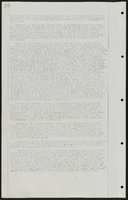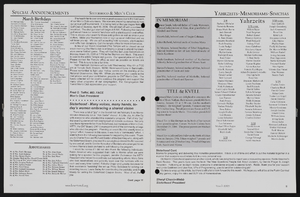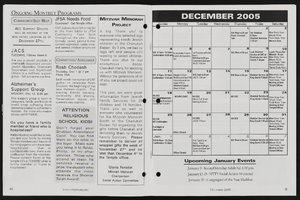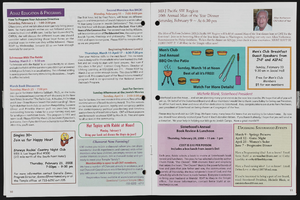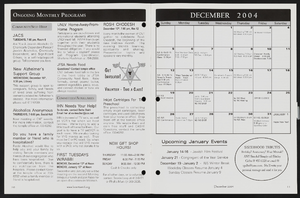Search the Special Collections and Archives Portal
Search Results
Magdalena Martinez oral history interview
Identifier
Abstract
Oral history interview with Magdalena Martinez conducted by Monserrath Hernandez and Barbara Tabach on April 4, 2019 for the Latinx Voices of Southern Nevada Oral History Project. In this interview, Magdalena Martinez recalls her childhood and growing up in Los Angeles, California. Martinez's parents are from Durango, Mexico, and immigrated to the United States in the 1970s. Martinez describes the generational differences that the women in her family faced and how the feminist movement of the 1970s did not resonate with women of color. Her family moved to Las Vegas in 1986 where she attended Bishop Gorman High School. After transferring to the University of Nevada, Las Vegas (UNLV) from community college and joining a student organization that would later become Student Organization of Latinxs, she became an early member of the Latino Youth Leadership Conference (LYLC) sponsored by the Latin Chamber of Commerce. Martinez describes how the LYLC has evolved over the years, and talks about her role in those changes. She discusses past work for CSN, NSHE, and currently is the Director of Education Programs with the Lincy Institute.
Archival Collection
Daniel Hinkley Papers
Identifier
Abstract
The Daniel Hinkley papers are comprised of material documenting Hinkley's work on behalf of the gay community in Las Vegas, Nevada between the years of 1991 to 2016. It includes Hinkley's files on the Progressive Leadership Alliance of Nevada, the campaign against Question 2, and various subjects related to the gay community in Las Vegas.
Archival Collection
Daughters of Union Veterans of the Civil War, Las Vegas, Nevada Records
Identifier
Abstract
The Daughters of Union Veterans (DUV) of the Civil War, Las Vegas, Nevada Records comprise various materials from the organization ranging from the years 1861 to 1970, with a bulk of the material dating from 1948 to 1954. The contents consist of a scrapbook of memorabilia and newspaper clippings, magazine articles profiling the Grand Army of the Republic, reissues of Harper’s Weekly from 1861, and the correspondence and ephemera of Henrietta Denny.
Archival Collection

Transcript of interview with Mindy Unger-Wadkins by Barbara Tabach, October 28, 2015
Date
Archival Collection
Description
In this interview, Unger-Wadkins discusses growing up in Las Vegas? close-knit Jewish community in the 1960s and 1970s, and involvement with various Jewish youth organizations and activities. She also describes her career in public relations, reflecting upon the unique challenges faced when interacting with the public, and with politics, in her positions. Unger-Wadkins ends by describing her current work in land development, particularly the history of the Three Kids Mine and the technical and political process of ensuring the land is suitable as a residential area.
Text

